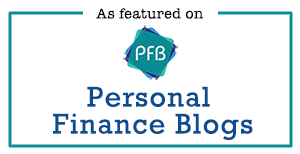There are ongoing debates in the personal finance / FIRE community in regards to home ownership and real estate investing.
Unfortunately, it’s impossible to pick an absolute answer because different groups in the buy vs rent spectrum live under different conditions and, more importantly, use different methods for classification.
So, is one’s home an asset or a liability? Well, if we stick to the accounting definition of an asset, a home is an asset, period. But let’s take a slightly different approach for the purposes of this post.
For example, if we get too technical or too literal with the definition of an asset (an owned or controlled resource with economic value that is expected to produce future benefits), classifying an owned residential property as an asset gets a bit tricky. Was it bought with an expectation to increase in price or just to simply live in it? I think that most people fall in the latter category. Will it be used for income-producing activities or for expense-producing activities? Again, I think that most people fall in the latter. Lastly, does it bring economic benefit or it brings economic drawbacks? And once again, I think that for most people the latter is the case.
So for the purposes of this post we’ll be more casual with the accounting terms and we’ll look at home ownership and real estate investing from cash-flow perspective rather than from balance sheet perspective.
So, asset or liability?
So, adopting the PF definition that anything that increases our balance is an asset, anything that decreases our balance is a liability, it’s simple:
Home ownership is a liability for most people.
Most people buy “more home” than they need and decorate it with more things that they need. The consequences are spending more on insurance, taxes, and maintenance, but also having more expenses on unnecessary items being hoarded and forgotten. On top of the direct expenses, so much time is also lost. Taking care of a garden in which you can’t spend more than 3 hours per day anyway while working full time leaves so little time for personal out-of-work activities. And let’s not forget the enormous opportunity cost in regards to where the money could’ve been allocated instead.
But then again… Most people enjoy it – they’re happier with having a larger house than saving more money. So unless it becomes detrimental to their well-being there are not many downsides to making wrong financial decisions. Unfortunately, most deal-breakers are things that we can’t really plan for – job losses, divorces, illnesses, politics, natural disasters, so all the potential financial drawbacks will come in the same package with a catastrophe. When it rains, it pours. 🙁
However!
“Most people” is a set of people who didn’t really care whether their homes will grow in value, but just see it as a place where they’ll build a happy family and enjoy their lives. Some succeed in that, some fail. But this post is not where I’ll analyze what the general public does. Let’s think about buying a home as an investment for someone who is actually concerned about it and wants to make the best financial decision.
Me.
Monk’s home – asset or liability?
Well, in reality it can end up in either column, but do you remember the “you make money when you buy” quote? Check these commandments out:
- I will never buy a home if I’m not sure it will make me money.
- I will never max out my down payment.
- I will never get the highest mortgage I can afford.
- I will never buy a home fully in cash.
- I will never buy an unrentable property, even if I plan to live in it.
- I will never consider only the short term consequences.
- I will never buy a home if it will increase my housing expenses.
- I will never buy a home larger than what I need – no time to maintain extra rooms / space.
- I will never buy a property that I can’t rent out for a higher amount than my overall expense.
- I will never buy a property that needs fixing (unless heavily discounted) or requires much ongoing maintenance (never).
And about taxes and insurance, I’ll always price them in in the valuation model. Don’t just compare the monthly mortgage payments with the rent, but compare the full outflow, including all expenses. What if they create a lower expense than just renting?
So when advocating renting instead of buying a property because it’s a liability (non-technically), don’t forget that accounts payable, that being your rent, is also a liability (technically). Of course, buying a property with a mortgage creates both an asset and a liability, but paying out the mortgage decreases the liability over time and increases your equity in the property.
The role of a mortgage
In terms of opportunity cost when choosing real estate instead of stock market investing – yes, stocks are more profitable on the long-run. No arguments there. But considering the leverage when buying a home, I see no reason of not diversifying a bit more, given the above-mentioned commandments.
Just to be perfectly clear what I mean, you can’t ask a bank to give you $300k on asset with. And this should be also evaluated when comparing the two.
I wrote about opportunity cost and leverage in this post.
If we assume no debt, yes, probably it’s best to stay away from investing into real estate. Your money may be better off elsewhere. But with the current IRs and each country’s conditions, it may be worth it for many people to own a home. And everything I said is also applicable to rental properties. Although buying them in cash doesn’t make sense, being able to get a relatively low rate with expenses lower than what you can rent it out for, might make sense.
What if I want to move?
If you/I want to move, there are three options:
- Sell the property
- Rent the property out
- Do nothing (don’t do this)
If you assessed the property and its potential properly, you’ll be able to rent out the property for profit. In the worst case scenario it won’t produce surplus, but it will “pay for itself”.
I’m aware that this is not the case for everyone and everywhere, and if it doesn’t make sense where you live, don’t do it. Use the should I rent or buy to help your assessment. Of course, there are non-financial concerns as well – if the government where you live hates landlords, you can pass on owning a rental property too.
And in regards to selling, depending on how much time you’ve lived in it and thus how big of a portion you’ve paid out, it might or might not be profitable to sell it. However, these parameters should be taken into consideration before buying the property. I know that there are parameters that we can’t foresee or plan for but an uncertainty premium should always be priced in in the planning.
I want to give a few examples but I don’t want to create FUD with first-time buyers, so a heads-up: the following paragraph contains things from the top of my head and it doesn’t mean that you need to optimize for each item. These include both short-term and long-term shocks and changes and vary from country to country – business cycles making the market contract, rate hikes making the prices lower, the job market affecting the supply and demand, imposition of price ceilings, changing demographics, political instability, etc. Once again, the goal is not to optimize for all – we can’t. This is by no means an exhaustive list nor all of them are applicable to every country’s foreseeable future. Just be aware that things might be different in a decade and, if anything, optimize for being comfortable with today’s decision.
Remember, you can’t hope to make money when you sell. It might or might not turn out your way, especially on the short run.
You make money when you buy.
Conclusion
A property is an asset, a mortgage is a liability, our ownership is equity. Assets = liabilities + equity. The way of life and your approach to housing will influence the type and size of cash-flows you’ll have.
Not buying more space than you need to feel comfortable and following a structured assessment while doing so can be worthwhile for many people.
Overspending is the real issue, regardless whether it’s on home or other rapidly depreciating assets or liabilities.








 PayPal.me/MonkWealth
PayPal.me/MonkWealth
I completely agree. This stuff really should be taught in elementary school.
So, any closer on that (first) property purchase? 😉
Indeed, mortgages, home ownership, and even accounting are fields that should be taught to everyone, not only economics students. I’m also wondering why budgeting / personal finance and especially taxes are not taught in school. Unlike many subjects, these are fields that people will actually need.
But let’s conspire: maybe “they” don’t want “us” to know. 🙂 (not the case – most of “them” don’t know as well) Anyway, once we understand the machine on a certain level, it feels like having a real-life cheat code.
I’d certainly teach my kids about money management. Do you? Maybe it’s a good post idea for your blog – “How I Teach my Kids About Personal Finance”. 🙂
Actually, a leveraged purchase of a property at these historically low interest rates can easily beat the stock market. And I mean one of the highest returning stock indices: S&P 500.
Do not underestimate the power of leverage nor its risks.
Definitely could.